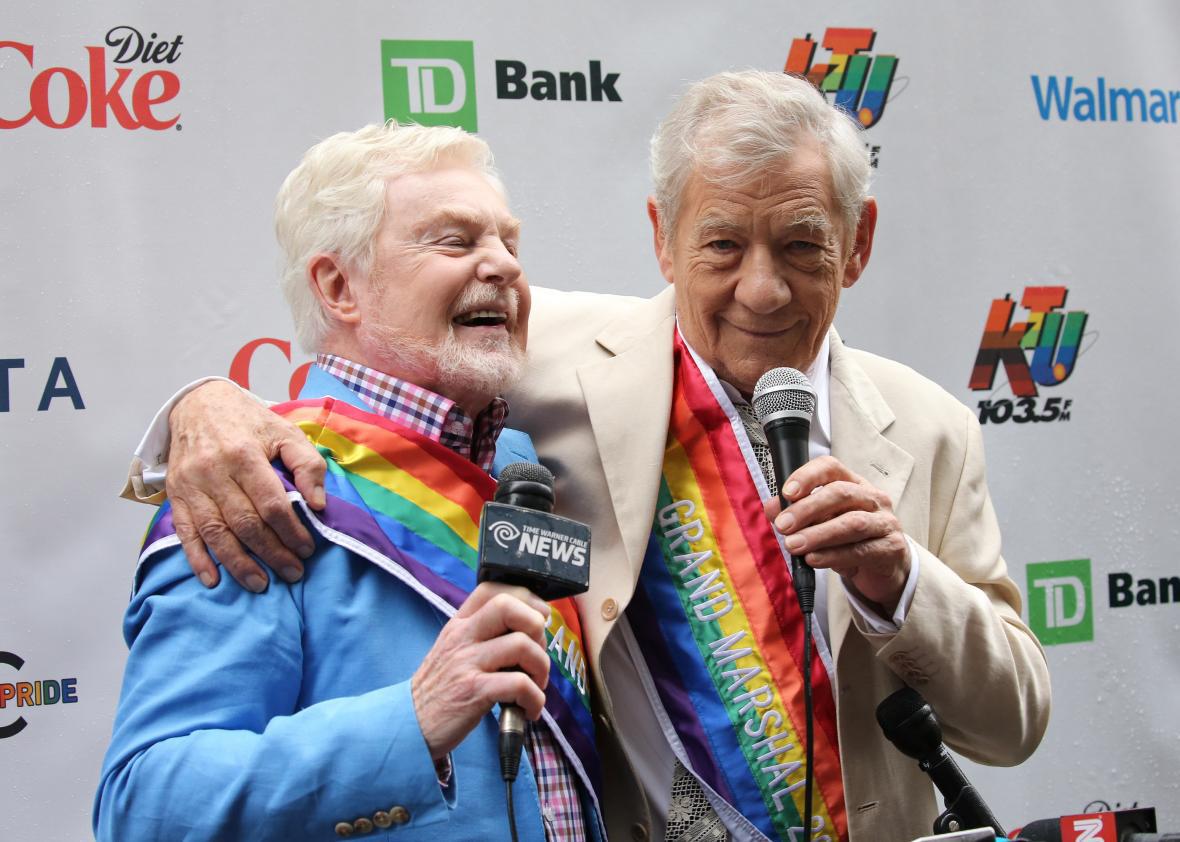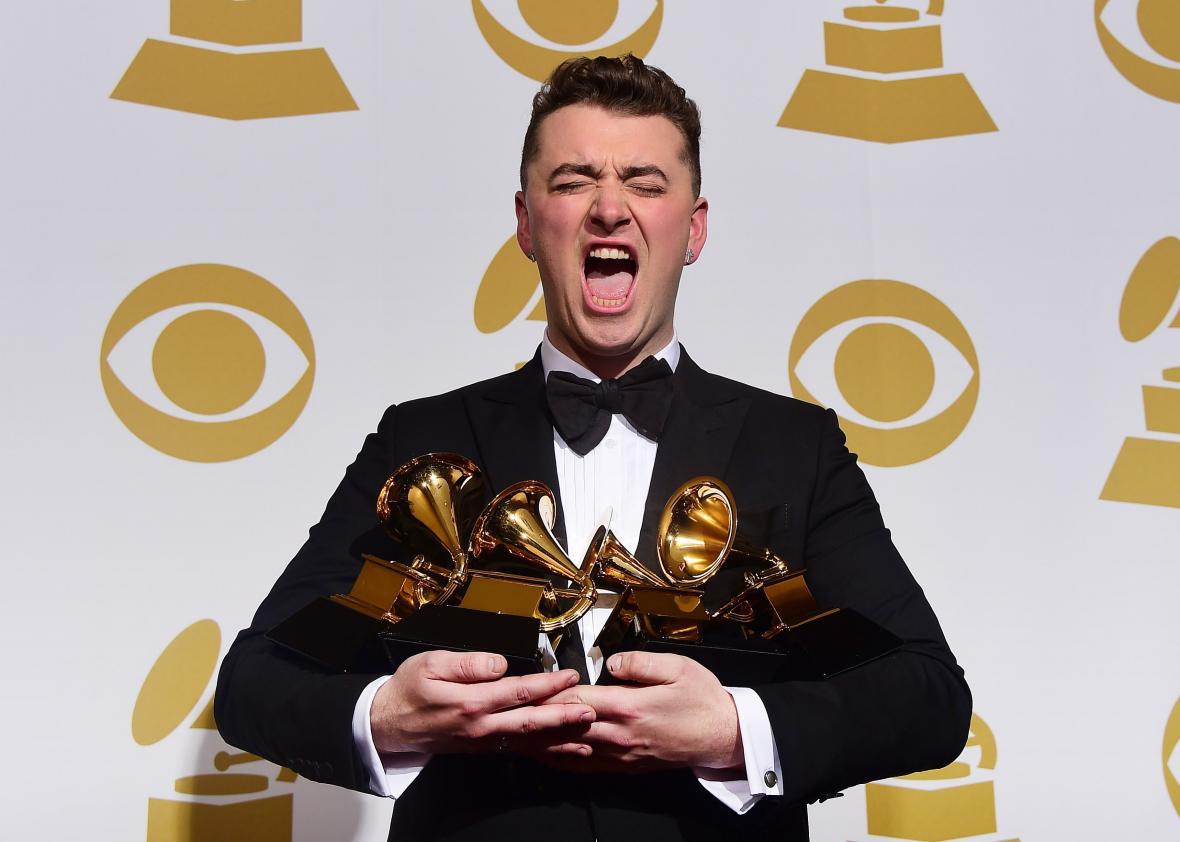We tend to think of the increasing frequency with which celebrities are coming out as a good thing. Wherever they are on the queer spectrum—Caitlyn Jenner as a trans woman, Ellen Page as lesbian, and just today, Olympic freeskier Gus Kenworthy as gay—it’s difficult to see the visibility and cultural clout they bring to the community as anything other than a positive. However, there’s an important difference between merely identifying as a member of a sexual or gender minority and setting oneself up as an expert on or speaker for that community. Identity does not grant authority, nor does it necessitate activism—and, in any case, it’s not a knock on the newly out to suggest that they might be better served focusing on their personal journeys for a while before turning to the public.
I’m thinking about this “community spokesman” dynamic today in response to two interviews circulating in the LGBTQ press. Newly minted Bond-chanteuse Sam Smith has the cover of NME this week, within which he revises his earlier rejection of gay spokesmanship; just a year after saying he’s “not trying to heal the world,” he’s ready for the mic. “I want to be a spokesperson,” he told the magazine. “I want to be a figure in the gay community, who speaks for gay men. I sell records in countries where gay men get killed and that’s a big thing for me, because maybe one person in that country will pick up my album, realize it’s by a gay artist, and it might change their opinion.” Last year he just wanted to continue being “normal” and ensure his appeal to all consumers; this year, he wants to be a gay “figure,” whatever that means.

Photo by Neilson Barnard/Getty Images
Then there’s Sir Ian McKellen, who, since coming out as gay in 1988, has been a proud community advocate and who was this year’s New York Pride grand marshall, alongside Vicious co-star Derek Jacobi. In a Hollywood Reporter podcast, McKellen offered his take on the conversation initiated by Matt Damon last month about whether or not actors should stay closeted: “That’s my message to anyone in this town who thinks ‘I’ve got to stay in the closet to be successful in films’,” he told host Scott Feinberg. “I didn’t. Do you want to be a famous movie star who has love scenes with ladies and in private be an unhappy gay? There’s no choice. Forget the career, dear. Go and do something else … A closet’s a really nasty place to live, you know? It’s dirty, it’s dusty, it’s full of skeletons. You don’t want it. Open that door—fling it wide and be yourself.”
Let’s compare these two utterances for a moment. Smith wants to be a “spokesperson” (this week), but to my knowledge he has never said anything interesting or substantive about his sexuality, other than it doesn’t make him all that different and he hopes his album still sells (and maybe changes a few minds!) in homophobic countries. (Others have convincingly argued that when he has spoken, his often conservative statements on gayness have been actively harmful.) Meanwhile, McKellen is just speaking, offering a compelling argument against the idea that actors can’t be out and a deliciously queeny dismissal of the closet. Yes, he’s older and can speak from more experience than Smith; still, he’s become a “figure” by actually having things to say.
This is instructive—many celebrities seem to want to be spokesmen and -women for the queer community now, because it has become relatively safe and definitely chic. But you actually have to possess, you know, a certain amount of knowledge, or at the very least the occasional insightful thought, for that to be meaningful. I’m all for Smith and anyone else using their pedestal for good in the world, but it seems to me that one achieves community respect and trust through action, not statements of intent.
